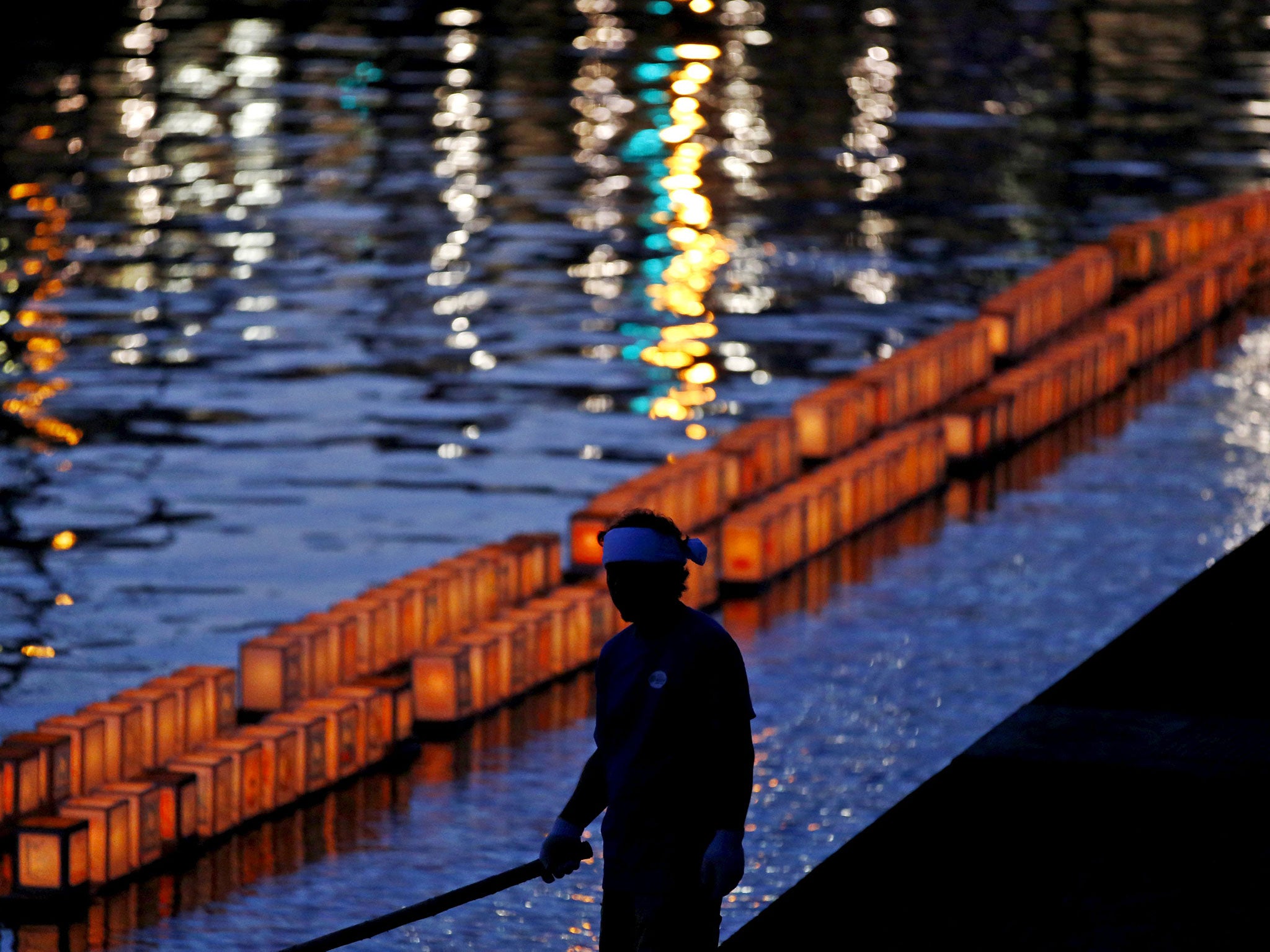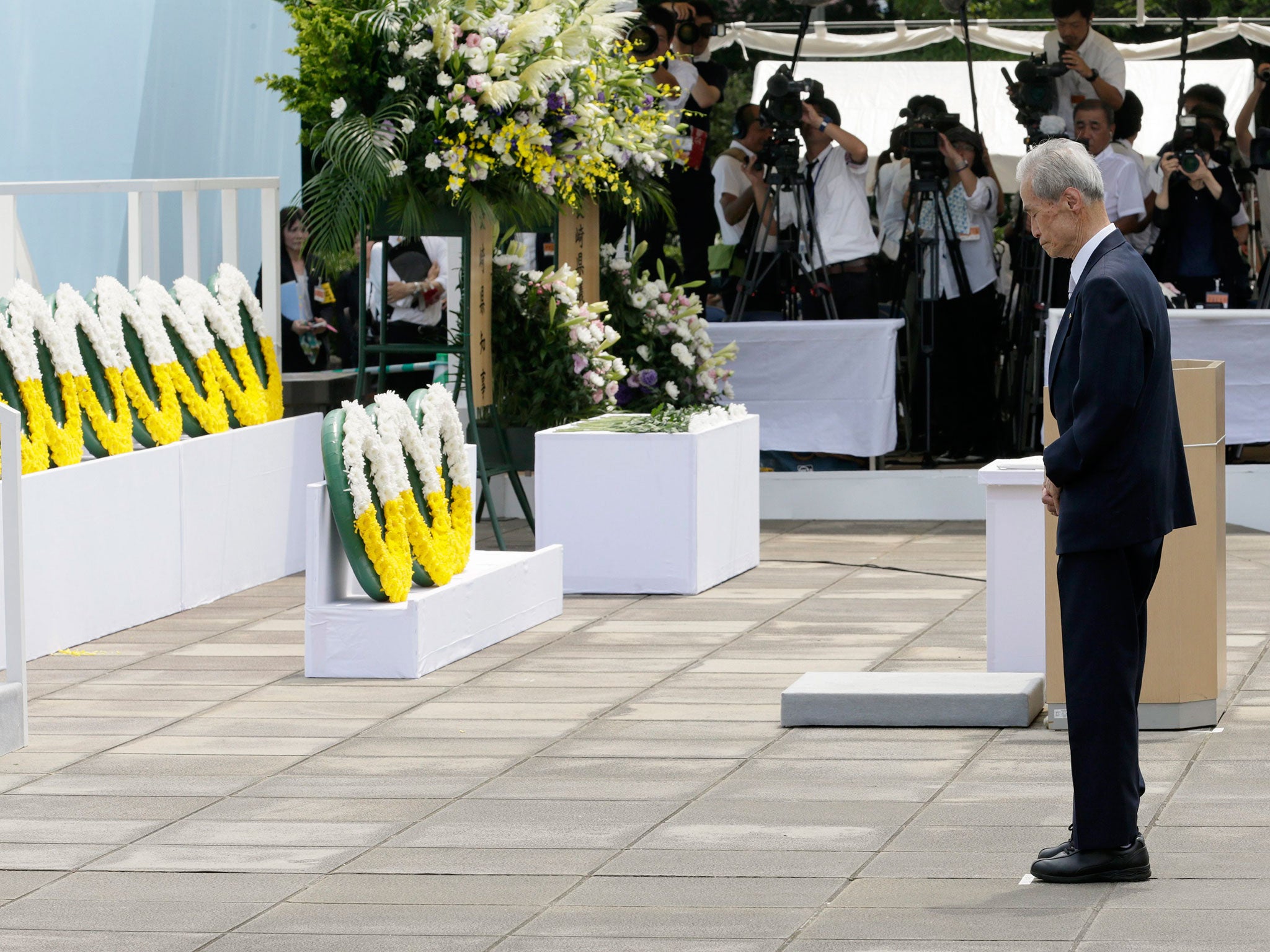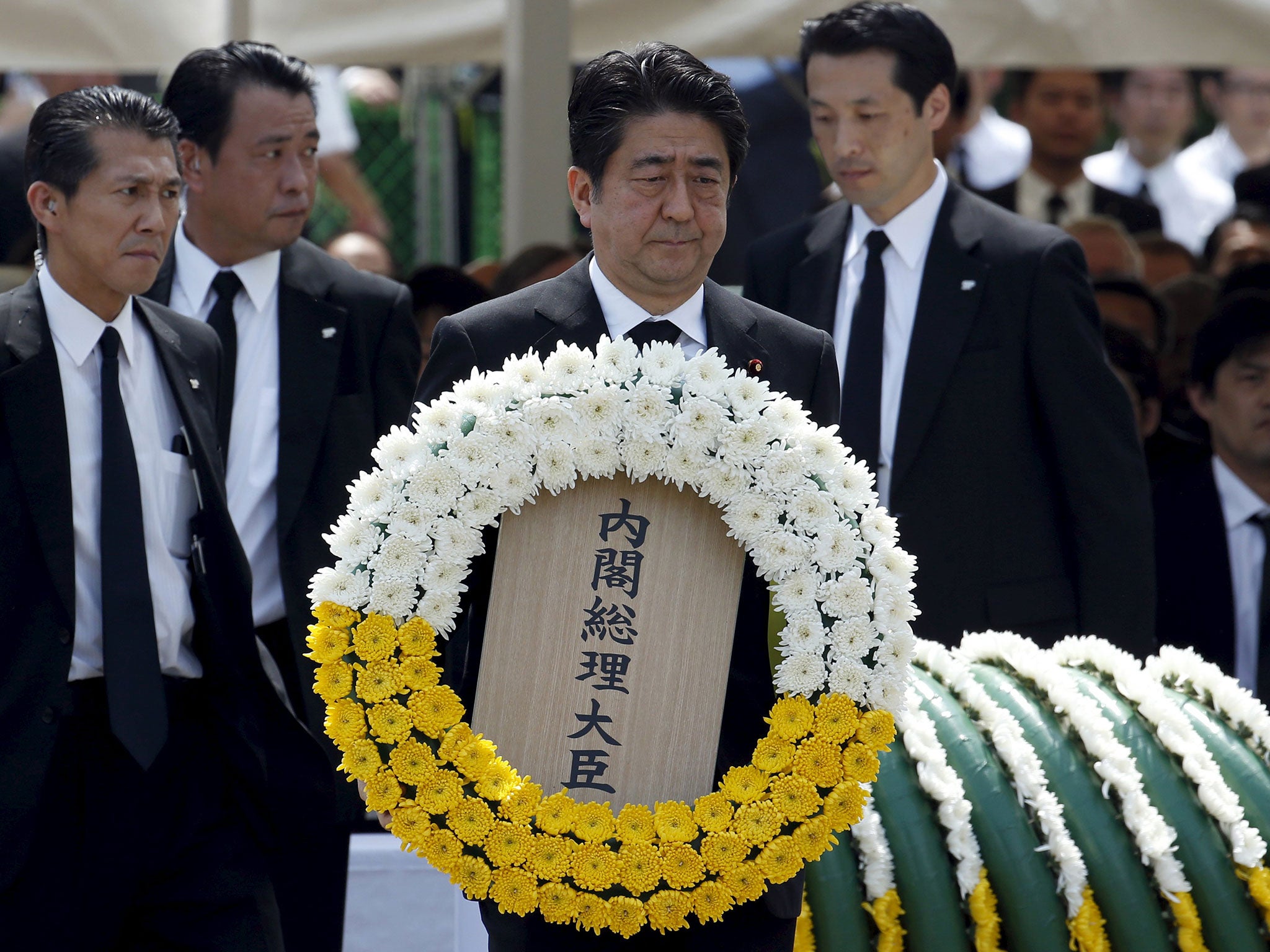Nagasaki remembered: Japan's Prime Minister Shinzo Abe told, get off the road to war
On the anniversary of Nagasaki's destruction by the atomic bomb, David McNeill reports from Tokyo on widespread fears that the government’s plans to beef up its military could dismantle Japan’s 70-year-old pacifist constitution

Your support helps us to tell the story
From reproductive rights to climate change to Big Tech, The Independent is on the ground when the story is developing. Whether it's investigating the financials of Elon Musk's pro-Trump PAC or producing our latest documentary, 'The A Word', which shines a light on the American women fighting for reproductive rights, we know how important it is to parse out the facts from the messaging.
At such a critical moment in US history, we need reporters on the ground. Your donation allows us to keep sending journalists to speak to both sides of the story.
The Independent is trusted by Americans across the entire political spectrum. And unlike many other quality news outlets, we choose not to lock Americans out of our reporting and analysis with paywalls. We believe quality journalism should be available to everyone, paid for by those who can afford it.
Your support makes all the difference.In the months after the United States dropped its atomic bombs on Hiroshima and Nagasaki, a new Japan emerged. Occupied by the allied forces to which it had surrendered, Japan adopted a new pacifist constitution, under which it would “forever renounce war”. In a country that was still losing tens of thousands to the effects of the bomb, the idea of peace was welcome.
At a commemoration of Nagasaki’s nuclear destruction on Sunday, those who lived through the horrors of 9 August 1945 warned that Prime Minister Shinzo Abe risked taking the country to the brink of a new war with his pledge to expand the role of the nation’s military forces.
“The security bills that the government is trying to push through would jeopardise our long-time movement for nuclear abolition and the hopes of hibakusha [atomic bomb survivors],” said Sumiteru Taniguchi, 86, to loud applause from the crowd in Nagasaki Peace Park. “We cannot allow this,” he said, looking directly at Mr Abe.
The anniversaries of Nagasaki and Hiroshima have come as Japan’s parliament debates legislation that critics say will hollow out the nation’s pacifist constitution, written a year after the war ended. The bombs took an estimated 200,000 lives in August 1945. Tens of thousands more died subsequently from burns and radiation-induced illnesses.
Nagasaki’s mayor, Tomihisa Taue, also spoke, saying the legislation was causing “worries and anxieties” that the pledge not to wage war was now being “undermined”.
Mr Abe, looking ill at ease, sat staring straight ahead throughout both speeches.

The Prime Minister angered A-bomb survivors on Thursday when he appeared to drop a longstanding pledge to keep Japan free of nuclear weapons during his speech in Hiroshima to mark the anniversary of the first bomb. Earlier in the week, the Defence Minister Gen Nakatani had also triggered a row when he admitted that the new legislation might allow Japan to transport nuclear weapons for an ally, though he added that the country’s non-nuclear principles ruled this out.
Speaking in Nagasaki, Mr Abe insisted there was no change to the three principles – not to posses, produce or allow nuclear arms into the country. “As the only nation in the world to have suffered a war-time nuclear attack, I have renewed my resolve to play a leading role in pursuing a world without nuclear weapons,” he said. Japan shelters under the US nuclear umbrella but has not developed its own bomb.
The criticism from the hibakusha, broadcast on national television, will embarrass him as he tries to loosen the bonds of the pacifist constitution, driven by the aggressive rise of China and the growing strength of his conservative backers. Survivors of the nuclear bombs still carry enormous moral weight, though they are unlikely to stop the security bills, which are expected to pass by the end of the summer.
The government wants the Self-Defence Forces (SDF) to play a more muscular role in the US-Japan security alliance, with Mr Abe saying the country must take more responsibility for its own defence and repeatedly insisting that it will not fight America’s proxy wars. But popular opposition is running high – most polls show that most Japanese, like Mr Taniguchi, still support the pacifist constitution.

“Whatever he says, Mr Abe is setting Japan back on the road to wage war,” said Shoji Sawada, a Hiroshima survivor who lost his mother to the bomb. “Mr Taniguchi spoke for us all – what he said is very important to us.”
Before the ceremony, Nagasaki officials added the names of 3,300 people who have died this year as a result of the atomic bomb, bringing the total number of victims to 168,000. Across the city yesterday, people fell silent at 11:02, the exact time the bomb was dropped from an American plane 70 years ago.
A frail Mr Taniguchi told the audience, which included US ambassador to Japan Caroline Kennedy, that he was 16 when the bomb was unleashed, leaving him badly burnt and bedridden for nearly two years. Like many survivors, he had endured a lifetime of pain, he said. “Because of these injuries, you can still see my heart beating through my ribs.”
READ: The man who survived both Hiroshima and Nagasaki
US before and after images from Nagasaki
The Independent's interview with survivor Yamaguchi
Ms Kennedy stuck a more diplomatic note, saying ties between her country and Japan stood as a “model of the power of reconciliation” and that she would continue to work to “advance President Barack Obama’s goal” of a world free of nuclear weapons. Mr Obama won a Nobel Peace Prize six years ago for promoting nuclear non-proliferation, but has come under fire since for doing little to make it happen.
Mayor Taue took flak from conservative politicians last year when he called pacifism the “founding principle” of post-war Japan. Yesterday he said Japan’s peace was “born from the hardship” of hibakusha and “our reflection on the war”. “Our mission is to pass on that memory of war and the atomic bombings to others so there will never be a repeat.”
Join our commenting forum
Join thought-provoking conversations, follow other Independent readers and see their replies
Comments